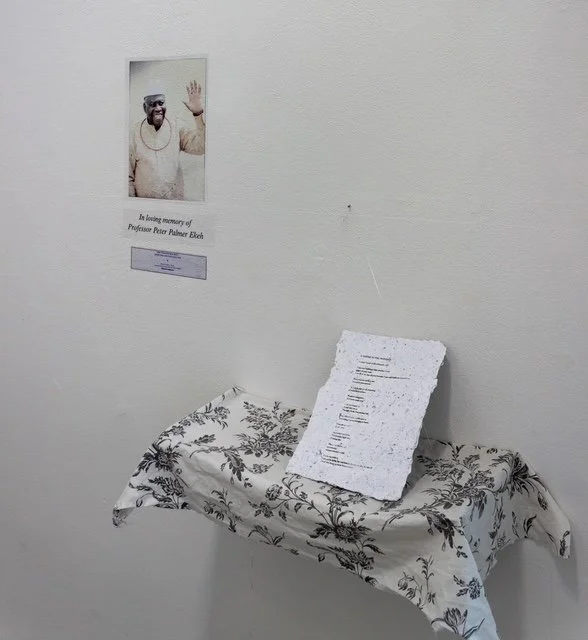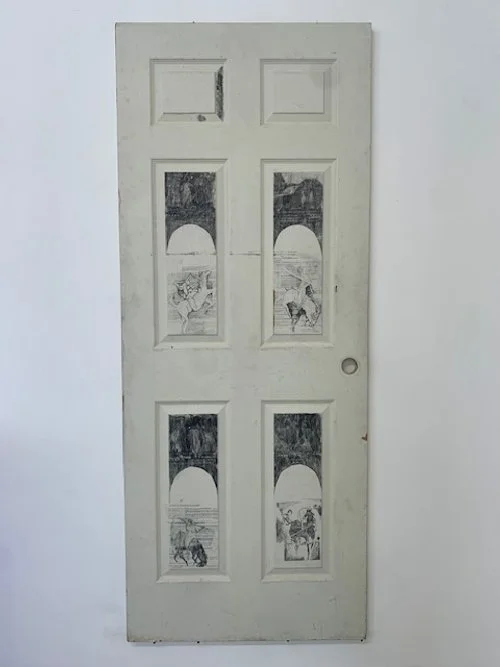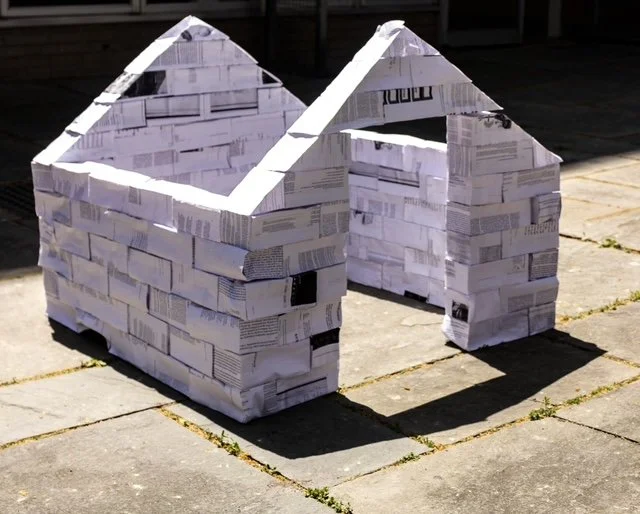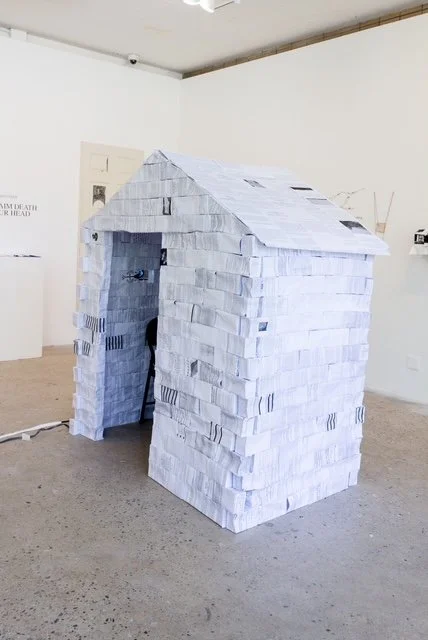I PROCLAIM DEATH ON YOUR HEAD
In the year 2000, historian, professor, and scholar Peter Palmer Ekeh constructed waado.org, the internet's foremost resource on the culture and history of the Urhobo people of the Niger Delta. On this website, the professor dedicated many pages to preserving the history of oil spills and flare fires in Urhoboland between the years 1998 and 2000 caused by energy giants such as Shell and Exxon Mobil. In the 25 years following, little by little, articles on news websites have been archived, web domains have expired, human rights watch pages have been deleted, and report videos have been privated. Still, on Professor Ekeh's website, this history remains intact through an HTML archive.
I PROCLAIM DEATH ON YOUR HEAD (2025) is a multimedia intergenerational exhibition intent upon rematerializing this history through processes of printing, transferring, copying, reprocessing, and visualizing. Through ERA Field Reports, first hand testimonies, photographs, and news reports, these works recall the fires and spills archived in waado.org's annals, refusing to let these moments of enormous destruction and death fade into obscurity.
Yet, it is not enough to remember. Co-opting imagery and materials from the other side of her family such as familiar houses and street maps, and by incorporating materials from the comfortable, energy-consuming first-world lifestyle of which she is a product such as coffee filters, bedsheets, and pillow cases, the artist begins to juxtapose consumption and production, asking the question, "Why should one house stand while another falls?"
I PROCLAIM DEATH ON YOUR HEAD tells the story of an apocalypse that has already happened, is happening now, and continues into the future. The four horsemen of this apocalypse are the disasters and conquests that end a world continuously in order to fuel the building of the new one we enjoy every day. The artworks find in reports and documents a bottomless pit, a fiery, censer, a white horse, a red horse, a black horse, a pale horse, a dragon, an eagle, and continue to look for (although they may fail to find) oneness with the behemoth of suffering that makes the world go around.















